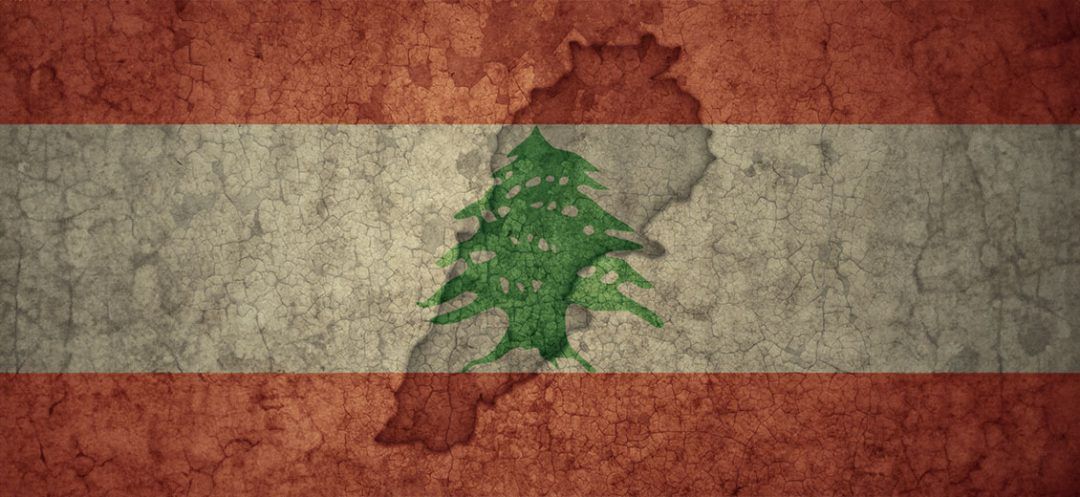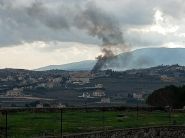
The rise of Hezbollah has significantly altered the landscape of Lebanese governance. As the formation consolidates its influence, many Lebanese Christians and a faction of politicians have begun to voice their concerns over the erosion of state authority and the marginalization of legitimate institutions.
This growing discontent has sparked discussions about the potential division of Lebanon, as some advocate for a reconfiguration of the state to better reflect the diverse identities and aspirations of its people. The call for a divided Lebanon stems from a deep-seated frustration with the current political dynamics, characterized by Hezbollah's military arsenal, its loyalty to foreign powers, and the pervasive sense that the country is being hijacked by a faction that prioritizes its agenda over national unity.
As Lebanon stands on the brink of a critical juncture, the debate over its future — whether to pursue a path of division or seek a renewed commitment to a cohesive state — has never been more urgent. But is this scenario plausible?
Throughout history, several countries have experienced division, leading to the formation of separate nations. This phenomenon often arises from a combination of political, ethnic, and ideological conflicts. Notable examples include North and South Korea, Cyprus, and more recently, the division of Sudan. This article explores these cases, the reasons behind their splits, and the implications of such divisions.
The division of Korea into North and South is one of the most prominent examples of a split nation. Following Japan's defeat in World War II in 1945, Korea was liberated from colonial rule but subsequently divided along the 38th parallel. The Soviet Union occupied the northern part, while the United States took control of the south. This division was initially intended to be temporary; however, ideological differences soon emerged. The North adopted a communist regime under Kim Il-sung, while the South established a capitalist government led by Syngman Rhee.
Tensions escalated into the Korean War (1950-1953), which solidified the division. The war resulted in millions of casualties and left the Korean Peninsula in a state of armistice rather than peace, creating a heavily militarized border known as the Demilitarized Zone (DMZ). Today, North Korea remains a totalitarian state, while South Korea has developed into a democratic and economically prosperous nation. The ideological divide continues to fuel tensions, with both countries maintaining distinct national identities and political systems.
The island of Cyprus presents another case of division, rooted in ethnic conflict. Cyprus has a complex history involving Greek and Turkish communities. In 1960, Cyprus gained independence from British colonial rule, but tensions between the Greek Cypriots and Turkish Cypriots escalated over the years. In 1974, a coup d'état by Greek nationalists aimed at uniting Cyprus with Greece prompted Turkey to invade the northern part of the island, leading to the establishment of the Turkish Republic of Northern Cyprus (TRNC), which is recognized only by Turkey.
The division of Cyprus has resulted in a long-standing conflict, with the island remaining split along the Green Line, an UN-patrolled buffer zone. Efforts for reunification have been ongoing, but political, territorial, and security concerns continue to hinder progress. The situation in Cyprus illustrates how ethnic and nationalistic tensions can lead to the permanent division of a country.
The division of Sudan into two separate nations in 2011 is another significant example of a country splitting due to conflict. Sudan's history is marked by civil wars, primarily between the northern, predominantly Arab Muslim population and the southern, predominantly African-Christian, and animist populations. The roots of this conflict can be traced back to colonial rule, which exacerbated ethnic and religious divisions.
After gaining independence in 1956, Sudan faced ongoing tensions that culminated in two lengthy civil wars, the first from 1955 to 1972 and the second from 1983 to 2005. The Comprehensive Peace Agreement (CPA) signed in 2005 ended the second civil war and paved the way for a referendum on independence for South Sudan.
In January 2011, the people of South Sudan overwhelmingly voted for independence, leading to the official creation of South Sudan on July 9, 2011. However, the split did not resolve underlying issues, as South Sudan has since faced its internal conflicts, including a civil war that erupted in 2013. The division of Sudan highlights how deep-rooted ethnic and religious disparities can lead to the formation of new nations, often accompanied by ongoing strife.
Several other countries have experienced similar divisions. For instance, the former Yugoslavia disintegrated in the 1990s into several independent states, including Bosnia and Herzegovina, Croatia, and Serbia, largely due to ethnic tensions and nationalist movements. The breakup was marked by violent conflicts, including the Bosnian War, which saw ethnic cleansing and significant loss of life.
Similarly, the division of Czechoslovakia into the Czech Republic and Slovakia in 1993 was a more peaceful example of a split, driven by rising nationalist sentiments and differing political and economic priorities. The separation was amicable, often referred to as the "Velvet Divorce," reflecting a mutual desire for independence while maintaining friendly relations.
The splitting of nations often leads to complex geopolitical implications. New borders can create minority populations in both countries, leading to potential conflicts and humanitarian issues. Economically, divisions can disrupt trade and create challenges in resource distribution. Politically, newly formed nations may struggle with governance, national identity, and international recognition.
In the case of North and South Korea, the division has resulted in a heavily militarized border and ongoing tensions that affect regional stability. Cyprus remains divided, with a significant impact on its economy and international relations. The split of Sudan has led to ongoing violence and humanitarian crises in South Sudan, highlighting the challenges faced by newly independent nations.
While some countries’ split occurs through conflict and violence, others may arise from peaceful negotiations. The aftermath of these divisions often includes a struggle for identity, governance, and stability, as newly formed nations grapple with the legacies of their past.
The prospect of Lebanon’s split into separate entities is a deeply divisive and complex issue that carries significant implications for the Lebanese people. While some argue that division could provide communities with greater autonomy, reduce sectarian tensions, and offer a chance for regions to rebuild independently of the nation's broader political paralysis, the reality is fraught with dangers. A split could exacerbate existing divisions, lead to economic isolation, and potentially trigger new conflicts over resources, borders, and governance. Furthermore, Lebanon’s unique cultural and social fabric, defined by its diversity and shared history, would be irreparably damaged by such a division.
Read more



Comments